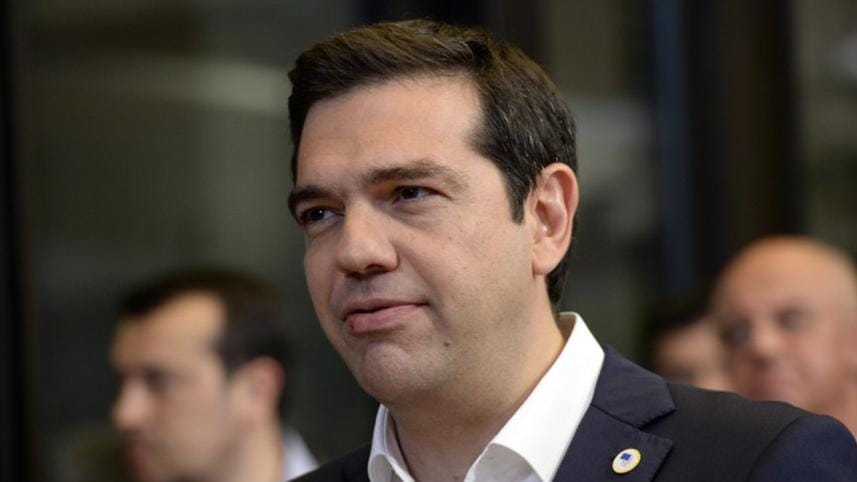'Final deadline' for Greece debt plan

The eurozone has given Greece until Thursday to present new proposals to secure a deal with creditors, and has called a full EU summit for Sunday.
European Council President Donald Tusk said this was now the "most critical moment in the history of the eurozone".
"The final deadline ends this week," he said after emergency talks in Brussels.
The eurozone had expected Greece to submit fresh plans on Tuesday after its voters rejected a deal in a referendum, but no new proposals were tabled.
On Sunday, a meeting of all 28 members of the EU will be held - a day after the new Greek proposals are expected to be discussed by the eurozone finance ministers.
In Brussels, Greece has been given an ultimatum: either there will be a deal or Greece and its banks face the prospect of going bust on Monday, the BBC's Chris Morris in the Belgian capital reports.
'Fast process'
Speaking at a news conference late on Tuesday, Tusk said a Greek bankruptcy and the collapse of the Greek banking system would affect the whole of Europe, and that anyone who thought otherwise was naive.
French President Francois Hollande said: "It's not just the problem of Greece - it's the future of the European Union" that is at stake.
Meanwhile, Greek Prime Minister Alexis Tsipras said he wanted a "socially just and economically viable agreement".
"The process will be fast. It starts in the coming hours with the aim of concluding it by the end of the week, at the latest," he said.
Tsipras is due to address the European parliament in Strasbourg later on Wednesday.
Analysis: Chris Morris, BBC Europe correspondent
Over dinner this evening, Greek PM Alexis Tsipras told his fellow leaders what he wants to achieve in the wake of his victory in the Greek referendum.
The suggestion is that he will agree to many but not all of the demands for reform which have been made by Greece's creditors. Some of them he had previously rejected. But he wants much more in return - a third bailout from the eurozone, some sort of agreement on restructuring his country's huge public debt, and more measures to encourage economic growth.
There is huge pressure on the Greek government because both the state and the banking system in Greece are on the verge of running out of money. But there is also pressure on other eurozone leaders. Tusk said this was perhaps the most critical moment in the history of the single currency and of the EU itself.
German Chancellor Angela Merkel said the eurozone leaders had had a "serious, candid discussion" in Brussels that "reflected the seriousness of the situation at hand".
She said the leaders "obviously respect the results of the referendum" but added: "As regards the euro, we don't have the sovereignty of just one country to contend with, but of 18. Shared sovereignty, shared responsibility."
Merkel said Greece needed a new debt programme that would last several years, not a short-term fix.
European Commission President Jean-Claude Juncker said he wanted Greece to remain in the eurozone but that Greece had to "tell us where they are heading" by the end of the week.
And he also issued a warning: "We have a Grexit scenario, prepared in detail." This was a reference to the situation in which Greece would have to exit the currency union.
Earlier there was anger among some eurozone members at the lack of new written proposals from Greece.
Lithuanian President Dalia Grybauskaite said: "There was a promise for today. Then, they're promising for tomorrow. For the Greek government it's every time 'manana' ['tomorrow' in Spanish]."
Greece's banks have been shut since its last international bailout programme expired last Tuesday.
Capital controls have been imposed, with people unable to withdraw more than €60 (£43; $66) a day from cash machines.
The European Central Bank (ECB) has refused to increase emergency lending.
However, Hollande said on Tuesday the ECB would now ensure minimum liquidity for Greece until Sunday.



 For all latest news, follow The Daily Star's Google News channel.
For all latest news, follow The Daily Star's Google News channel.
Comments